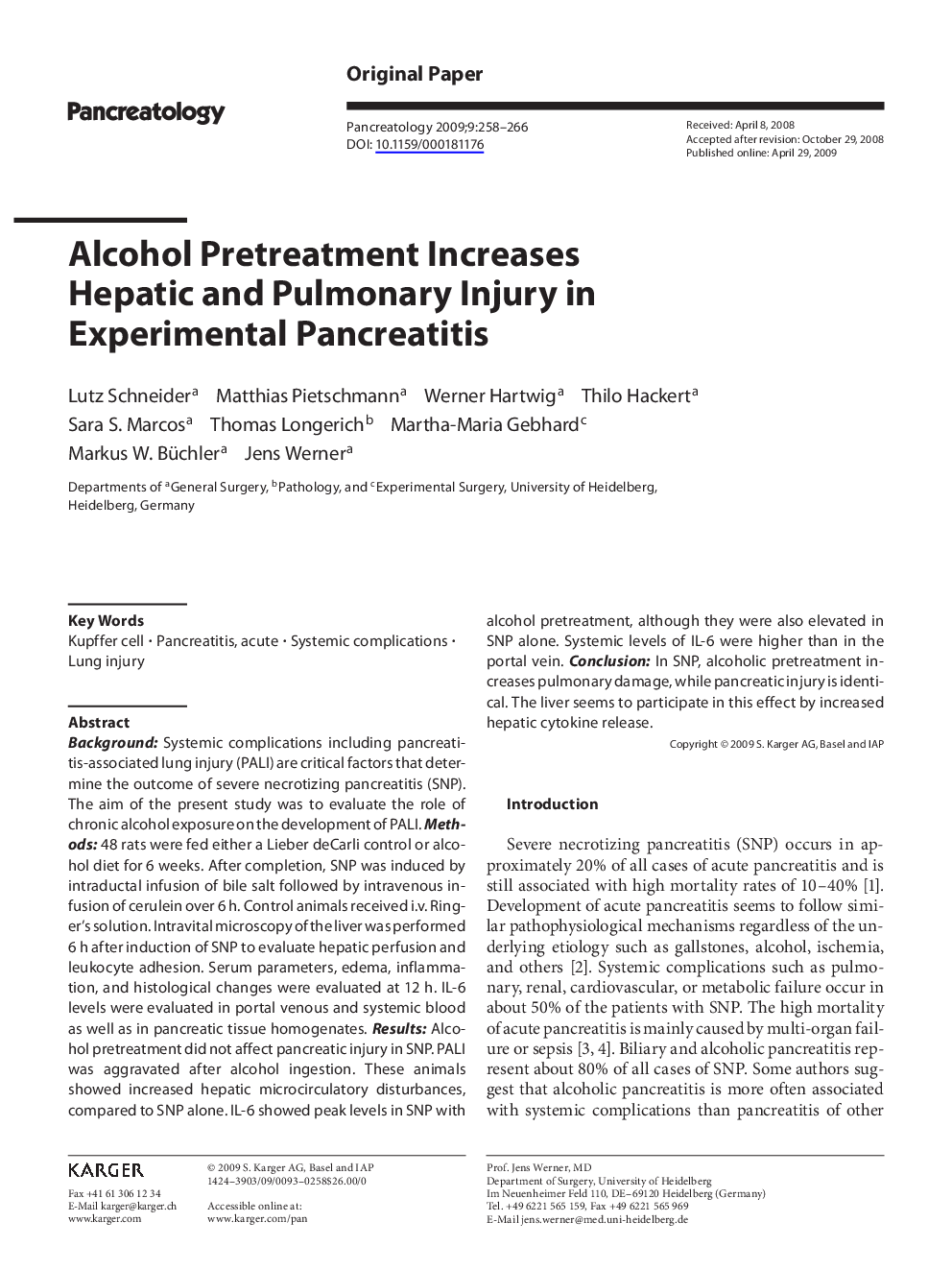| Article ID | Journal | Published Year | Pages | File Type |
|---|---|---|---|---|
| 3318180 | Pancreatology | 2009 | 9 Pages |
Abstract
Background: Systemic complications including pancreatitis-associated lung injury (PALI) are critical factors that determine the outcome of severe necrotizing pancreatitis (SNP). The aim of the present study was to evaluate the role of chronicalcohol exposure on the development of PALI. Methods: 48 rats were fed either a Lieber deCarli control or alcohol diet for 6 weeks. After completion, SNP was induced by intraductal infusion of bile salt followed by intravenous infusion of cerulein over 6 h. Control animals received i.v. Ringer's solution. Intravital microscopy of the liver was performed 6 h after induction of SNP to evaluate hepatic perfusion and leukocyte adhesion. Serum parameters, edema, inflammation, and histological changes were evaluated at 12 h. IL-6 levels were evaluated in portal venous and systemic blood as well as in pancreatic tissue homogenates. Results: Alcohol pretreatment did not affect pancreatic injury in SNP. PALI was aggravated after alcohol ingestion. These animals showed increased hepatic microcirculatory disturbances, compared to SNP alone. IL-6 showed peak levels in SNP with alcohol pretreatment, although they were also elevated in SNP alone. Systemic levels of IL-6 were higher than in the portal vein. Conclusion: In SNP, alcoholic pretreatment increases pulmonary damage, while pancreatic injury is identical. The liver seems to participate in this effect by increased hepatic cytokine release.
Related Topics
Health Sciences
Medicine and Dentistry
Gastroenterology
Authors
Lutz Schneider, Matthias Pietschmann, Werner Hartwig, Thilo Hackert, Sara S. Marcos, Thomas Longerich, Martha-Maria Gebhard, Markus W. Buchler, Jens Wemer,
